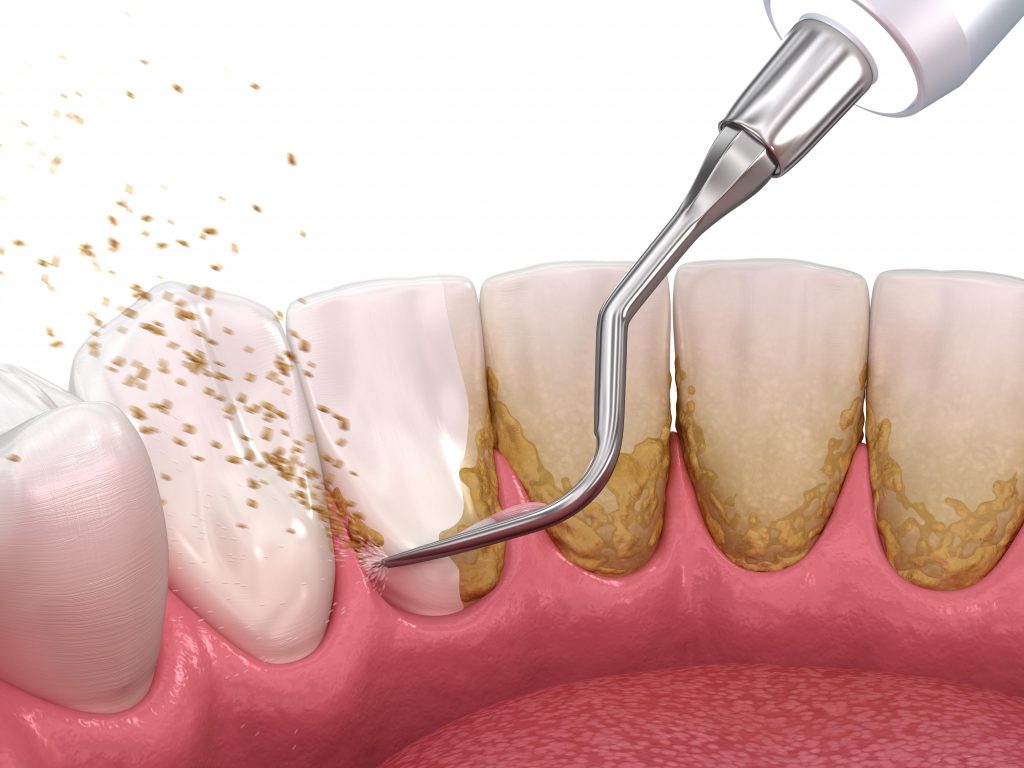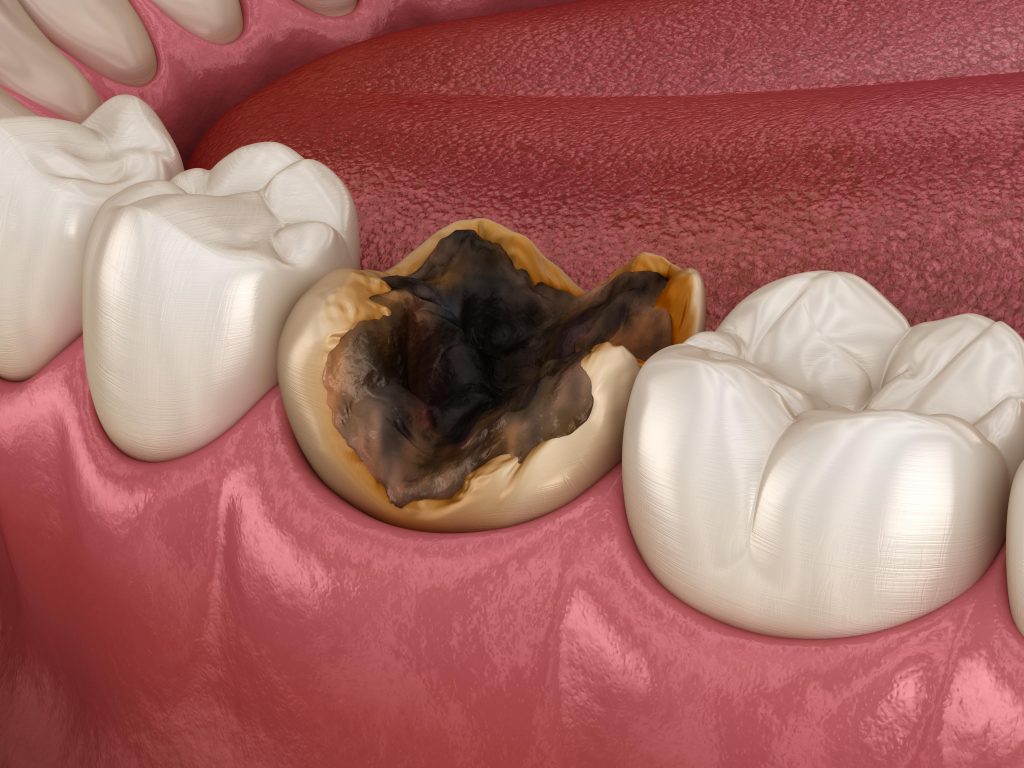Tooth decay is a common emergency problem and is a consequence of not looking after your teeth and gums properly. When you begin to experience some sensitivity in and around your gums, it is a symptom of tooth decay. This is just one of the symptoms of many others that cause tooth decay.
Your teeth will begin to decay due to the following reasons:
- A poor oral routine
- Frequent snacking of sugar
- Drinking sugar and acid
- A lack of calcium
- Not keeping your mouth clean
The process of tooth decay is lengthy but can progress fast. If tooth decay isn’t treated, it’ll have a deep impact on your oral health, damaging your smiling confidence and meaning many restorative treatments which can prove to be expensive.
So, how do teeth decay? Below breaks the process down into stages.

Dental Plaque
If you do not brush and floss your teeth twice a day, or keep your mouth clean from bacteria during the day, the surface of your teeth will be coated with dental plaque. Dental plaque is a pale sticky substance that forms from bacteria. Eventually, the dental plaque can harden into tartar. which makes it difficult to remove. Plus, those pearly whites will be covered with bacteria.
Enamel Erosion
Your enamel needs strong sources of calcium and phosphorous to be able to protect your smile. The enamel is located on the front surface of your teeth which acts as a protection tool from bacteria and infection. Enamel erosion is the process of acids exposing the underlying dentin. Once the enamel erodes and becomes exposed, your teeth will suffer from discolouration and your gums are at a greater risk of infection. A dental cavity will begin to form, a tiny opening or hole in a tooth.
Bacterial Pulp
The underlying dentin is the material that lies underneath the enamel of the tooth, comprising the outer enamel. The pulp in the centre of the tooth root can become exposed to bacteria, forming a pus liquid that reaches and damages the tooth nerve. This will cause extreme sensitivity and root canal treatment would be necessary.
Dental Abscess
The bacteria damage the underlying nerves, meaning the bacteria has reached the root of your tooth. the pus liquid builds inside your teeth and gums due to a bacterial infection. This means the tooth has surpassed the cavity stage and is now penetrating within your bloodstream. At this stage, the tooth is considered severely decayed beyond repair, and would most likely require tooth extraction treatment.

Tooth Loss
The affected tooth will eventually fall out of its socket, leaving you with a gap in your tooth set. The abscess has become severe and is now decaying your teeth. The tooth is unrepairable, but it is likely your tooth will fall out.
If you’re experiencing any stages of tooth decay outlined above, you need to consult your dentist as soon as possible for further treatment. Start here by booking yourself in with us for an appointment today.



